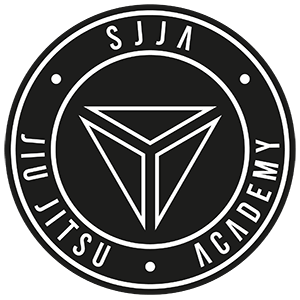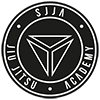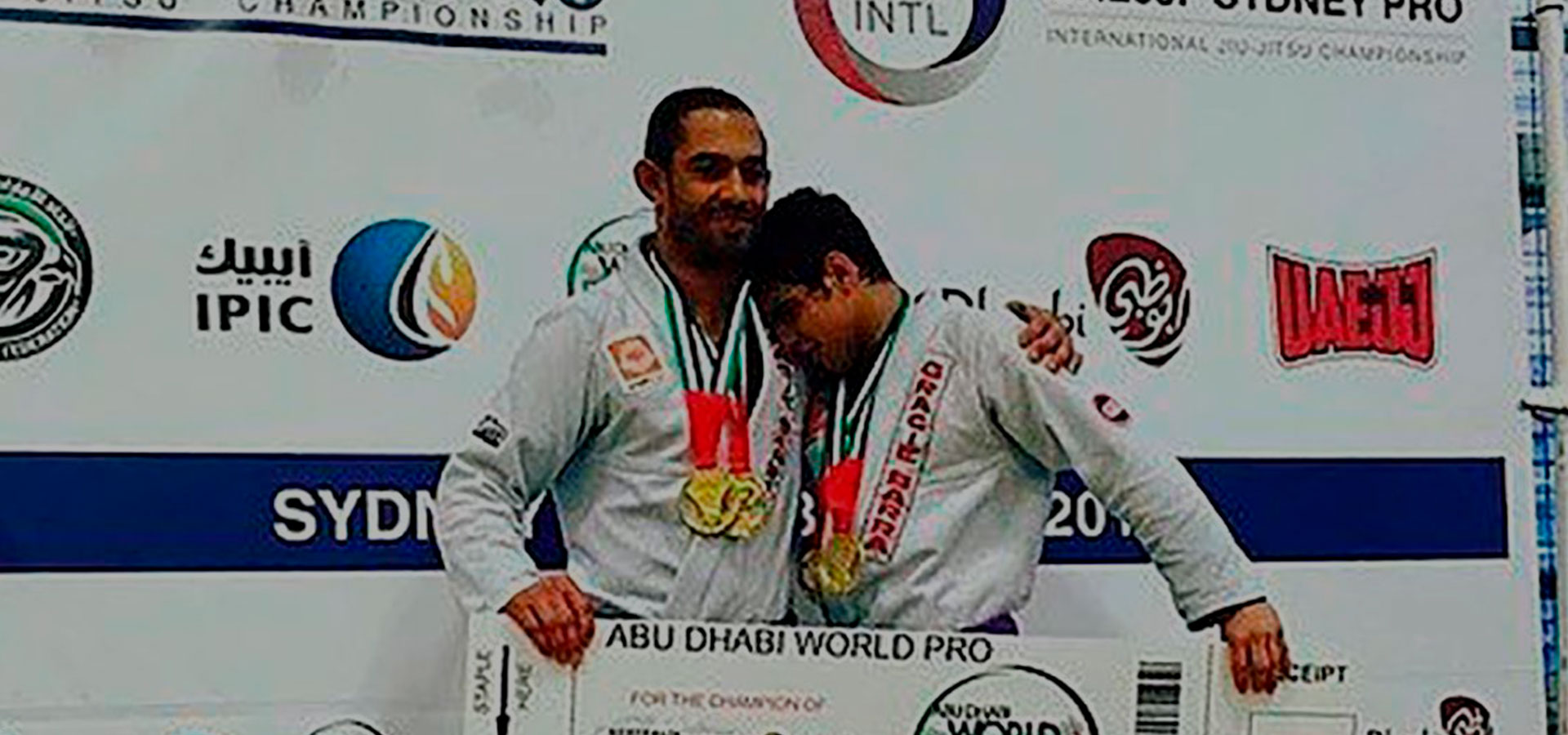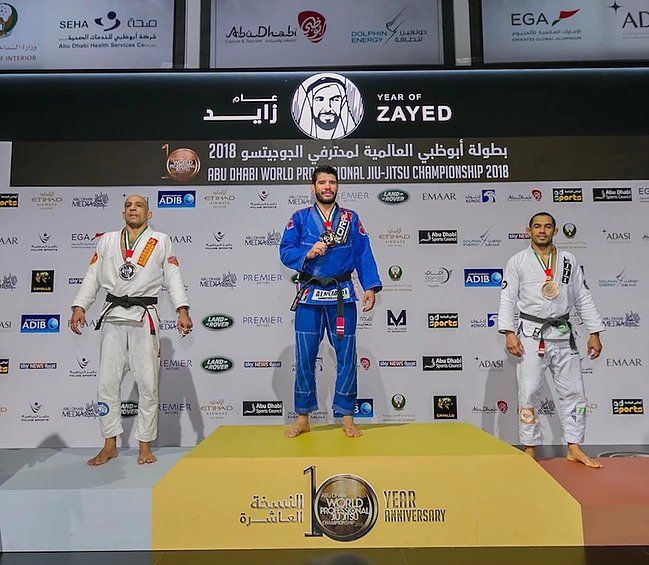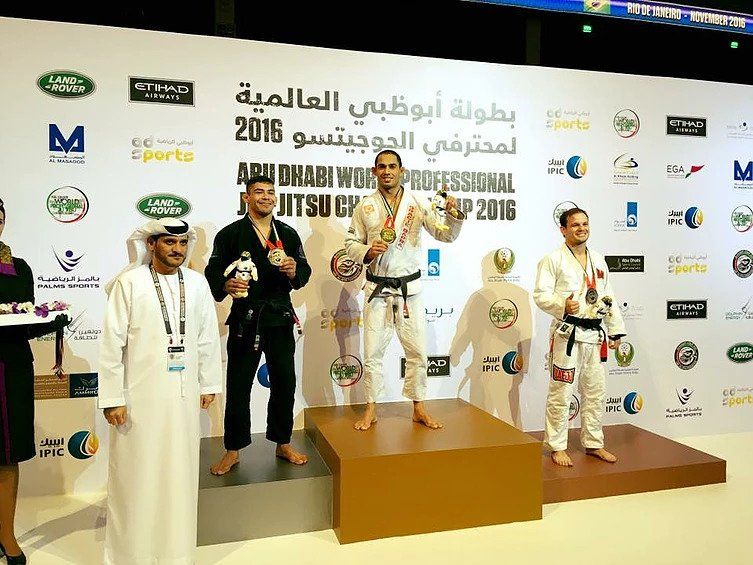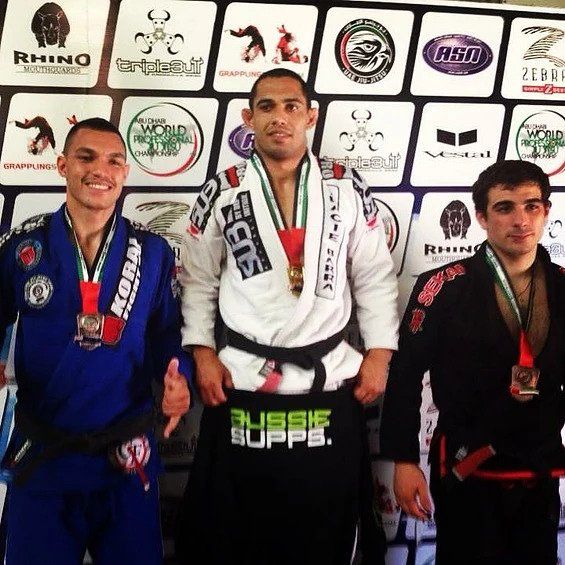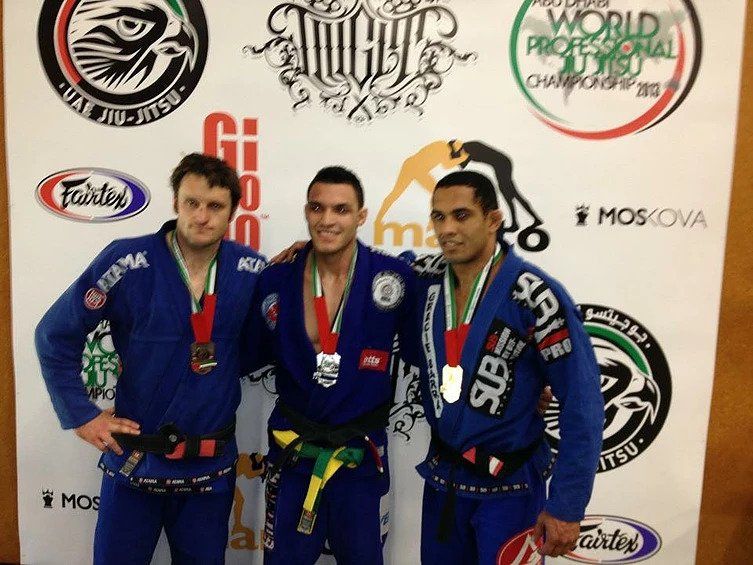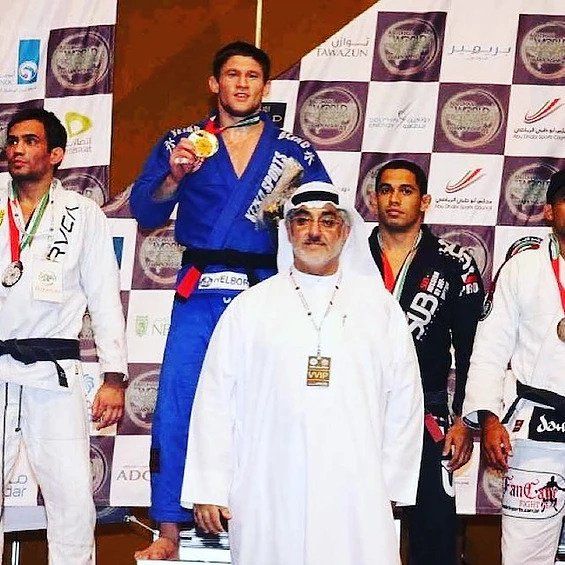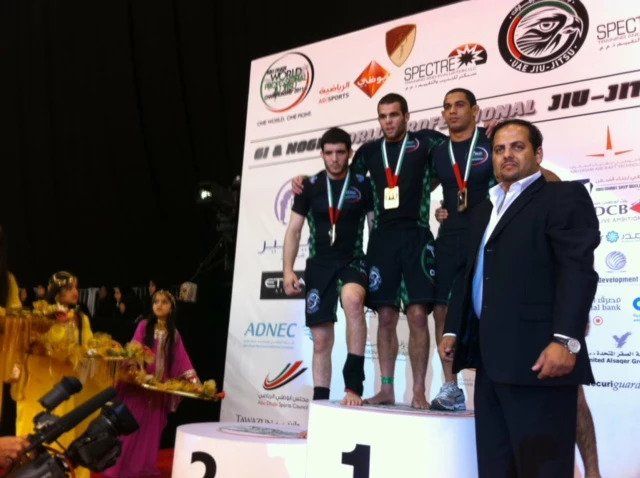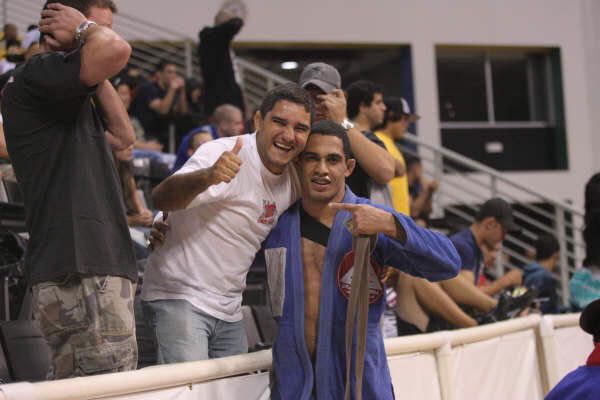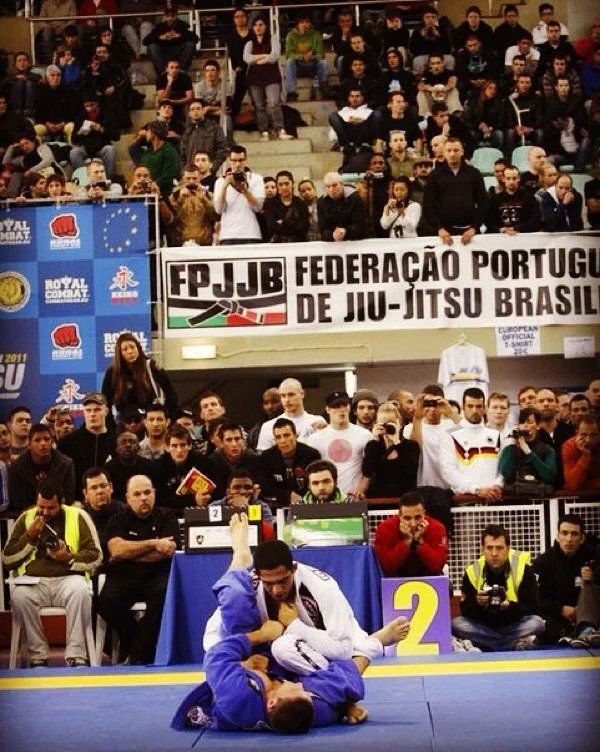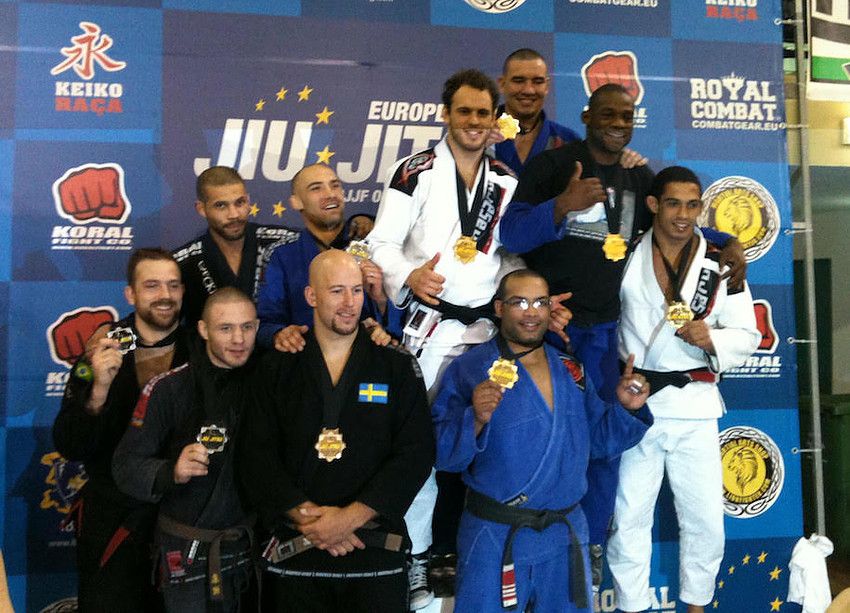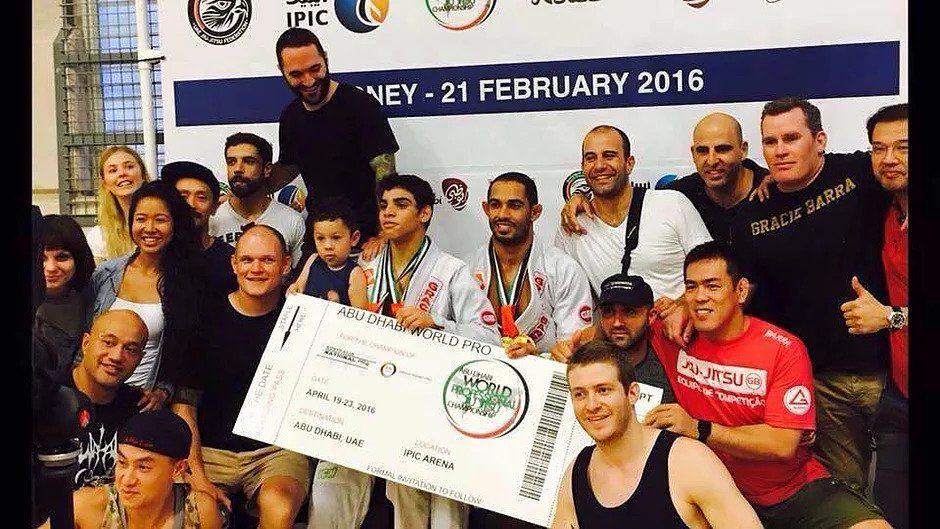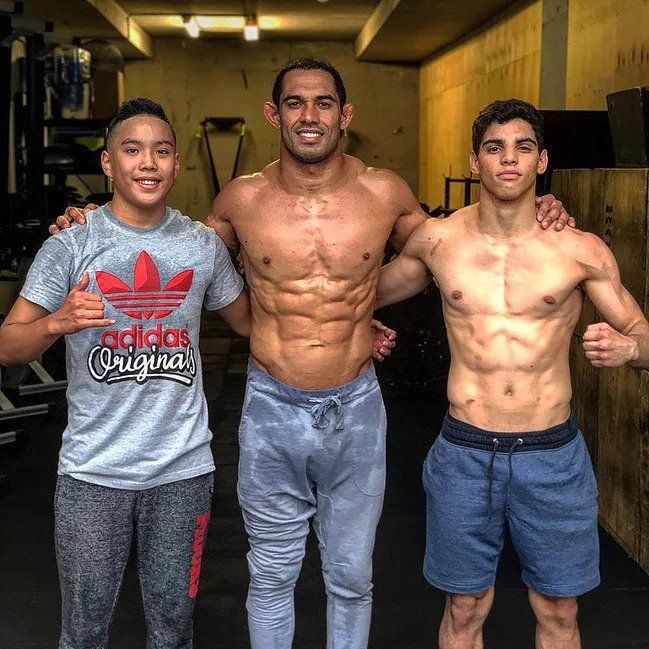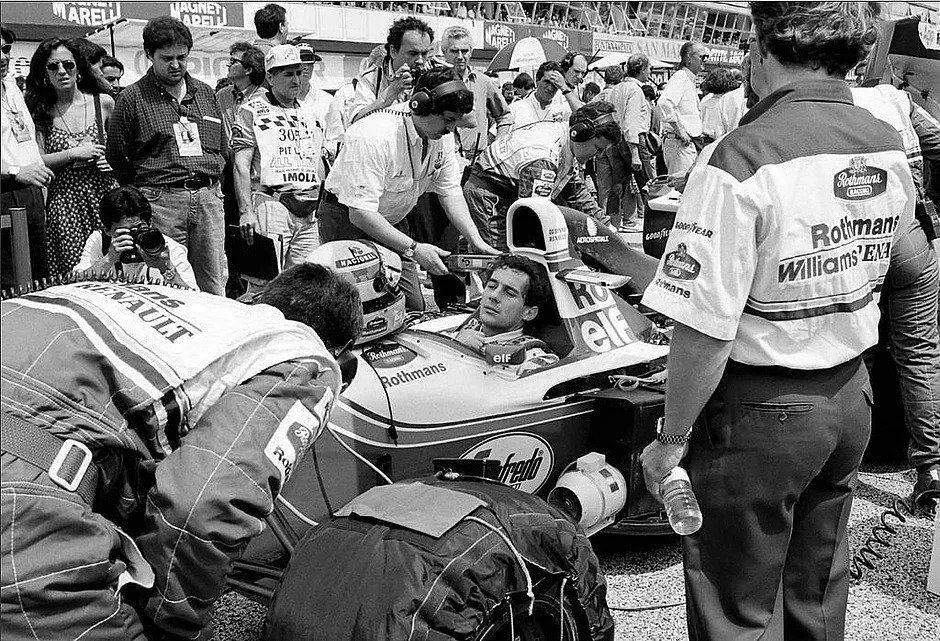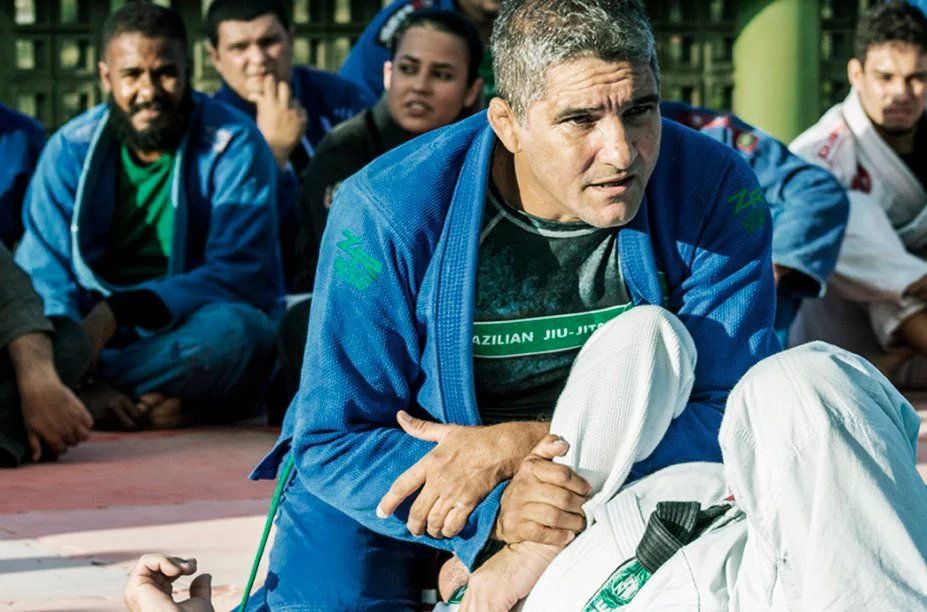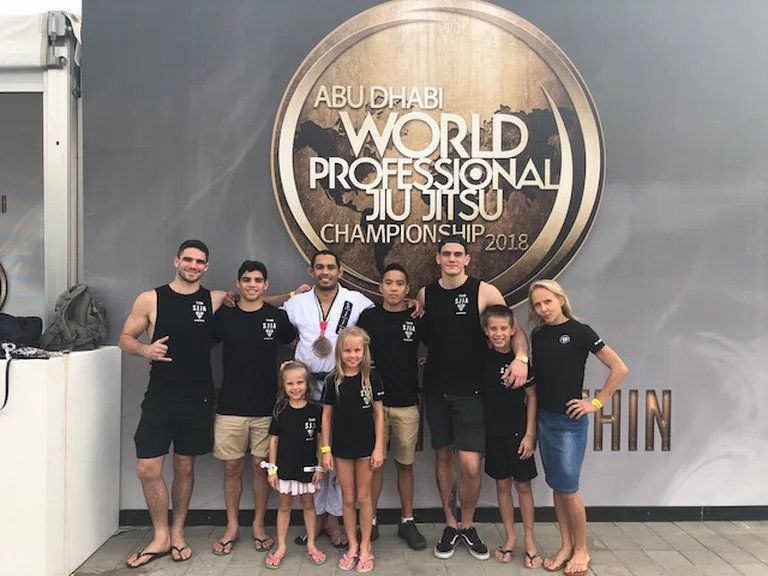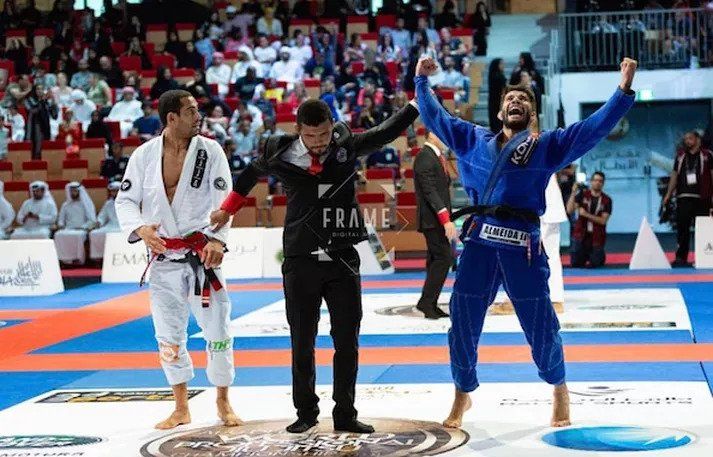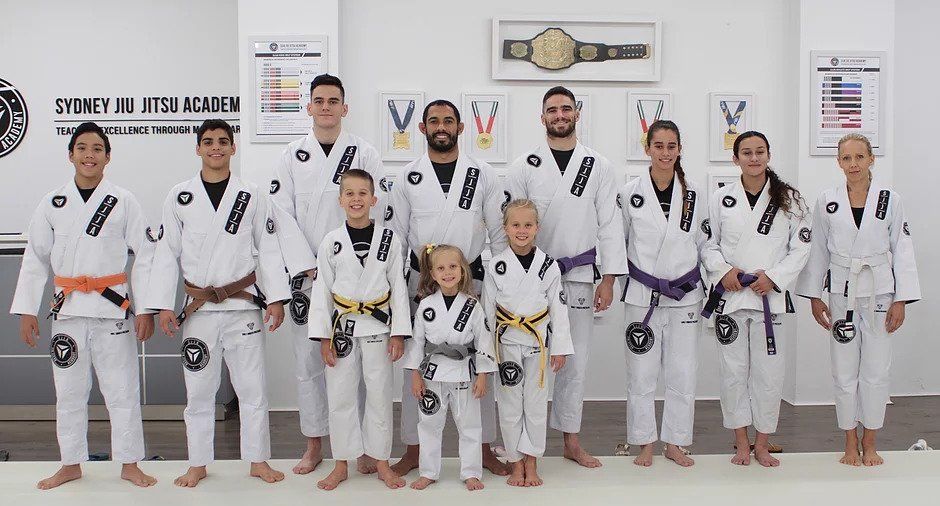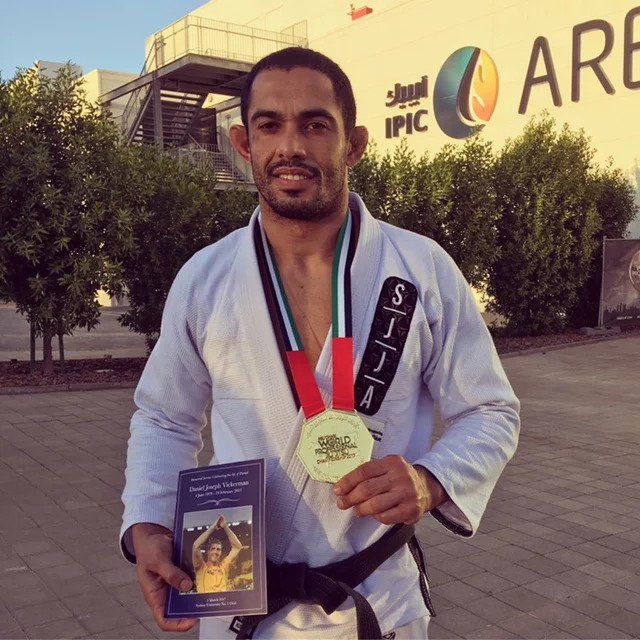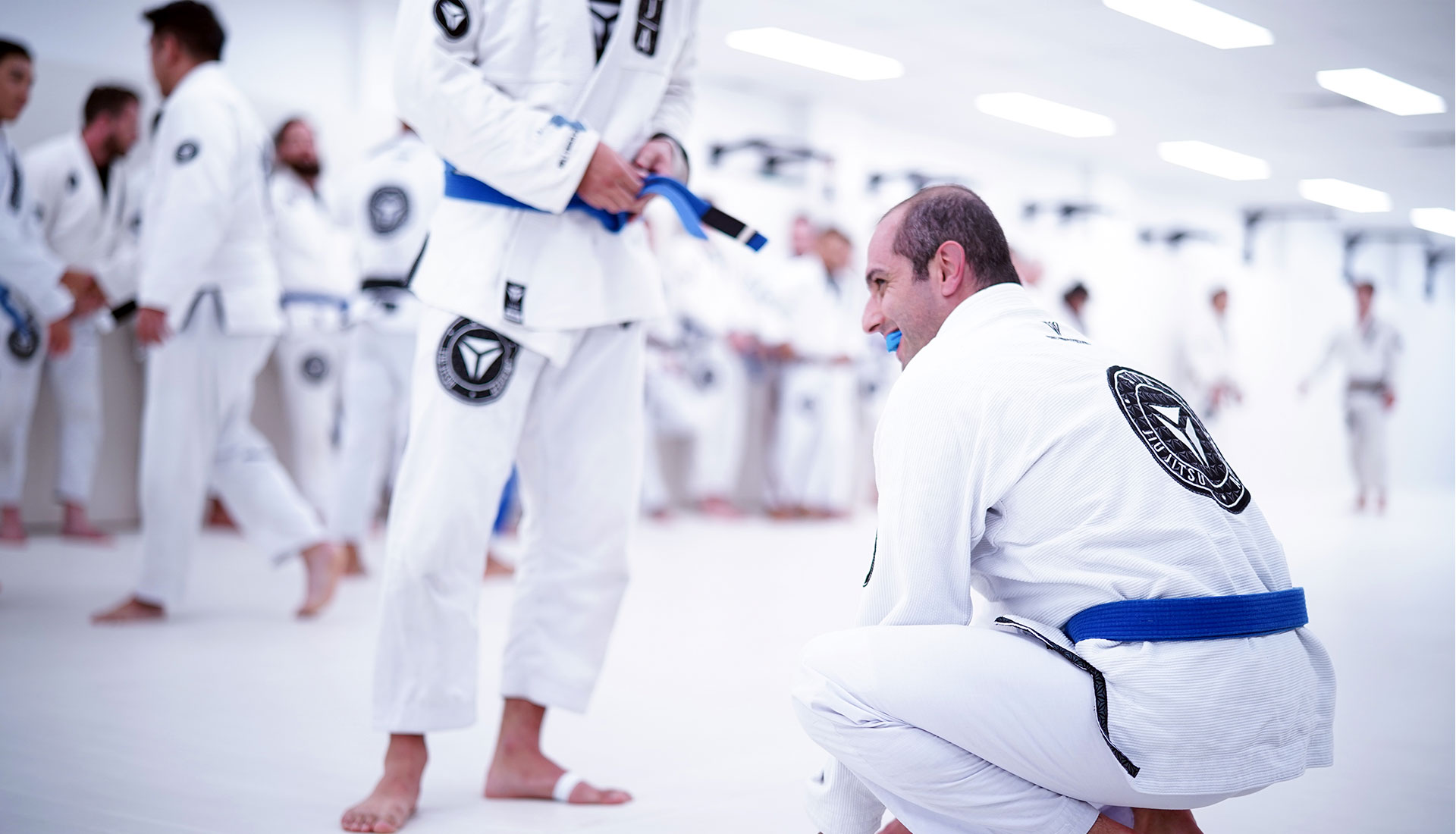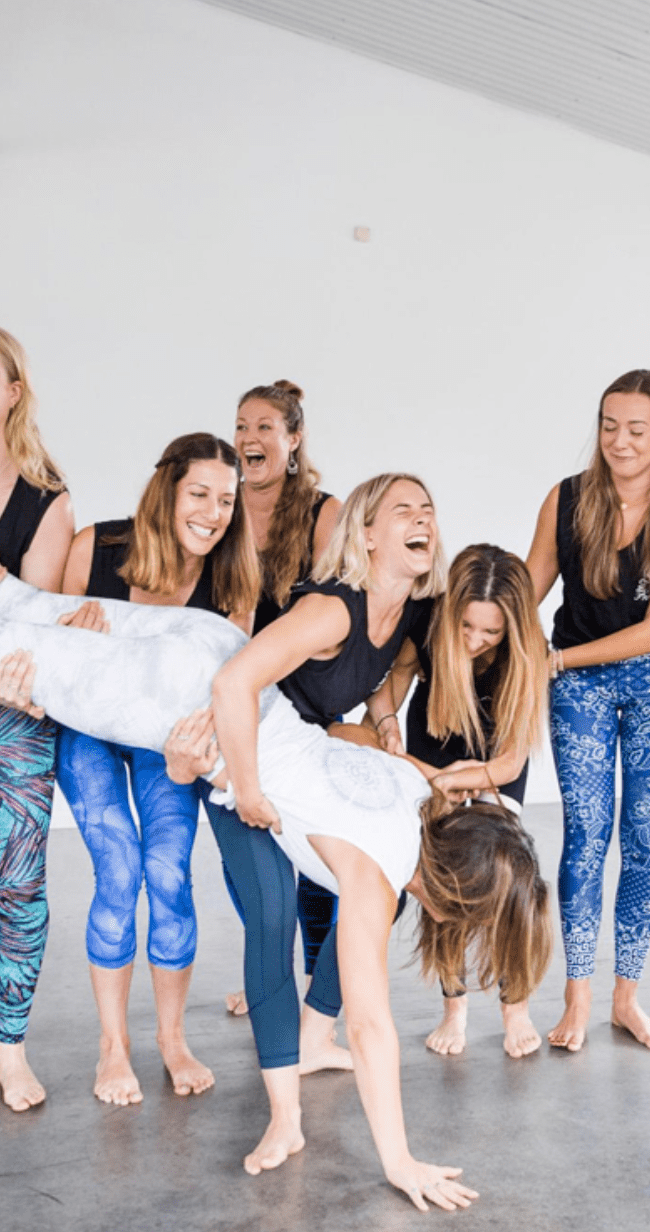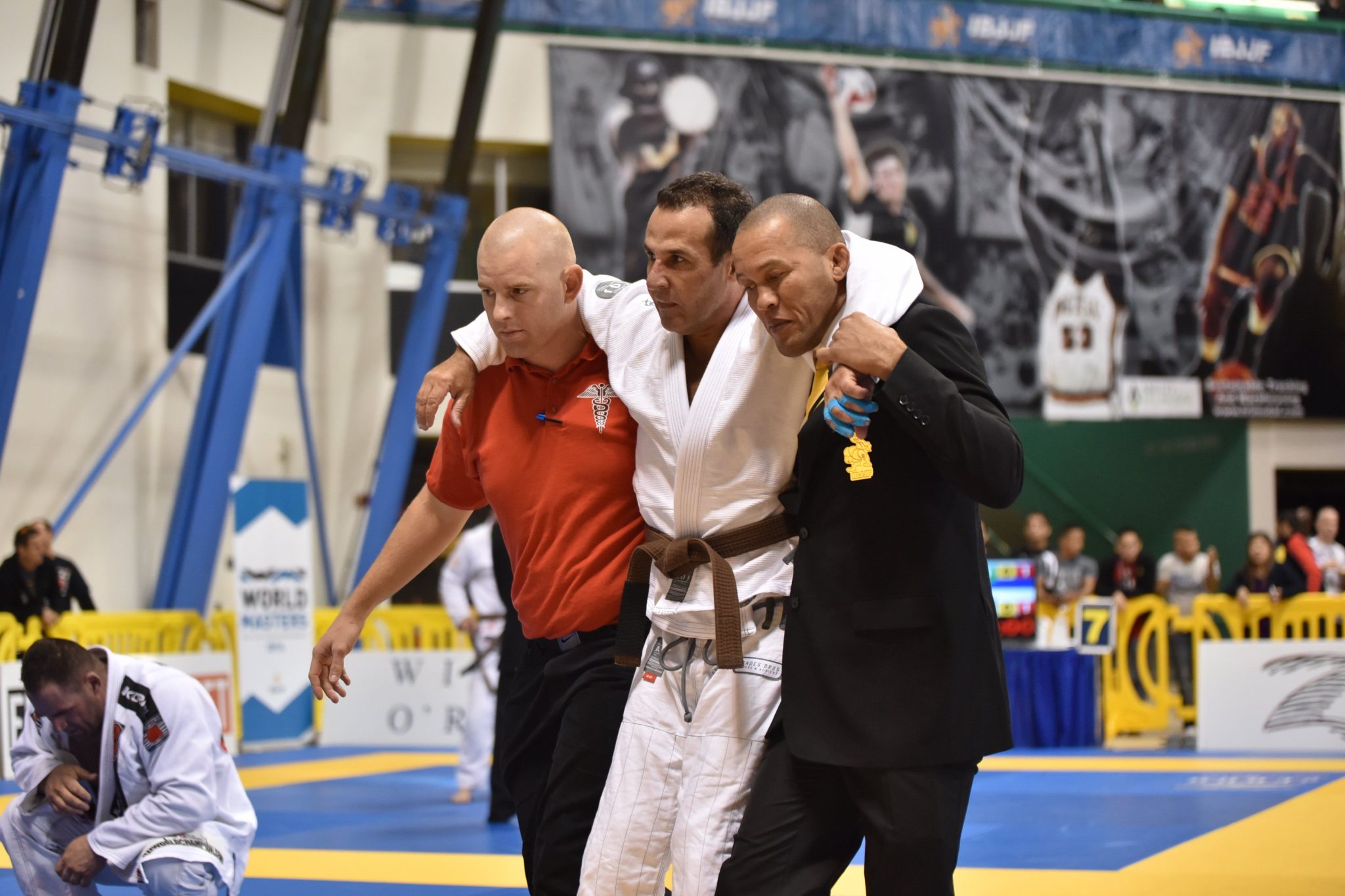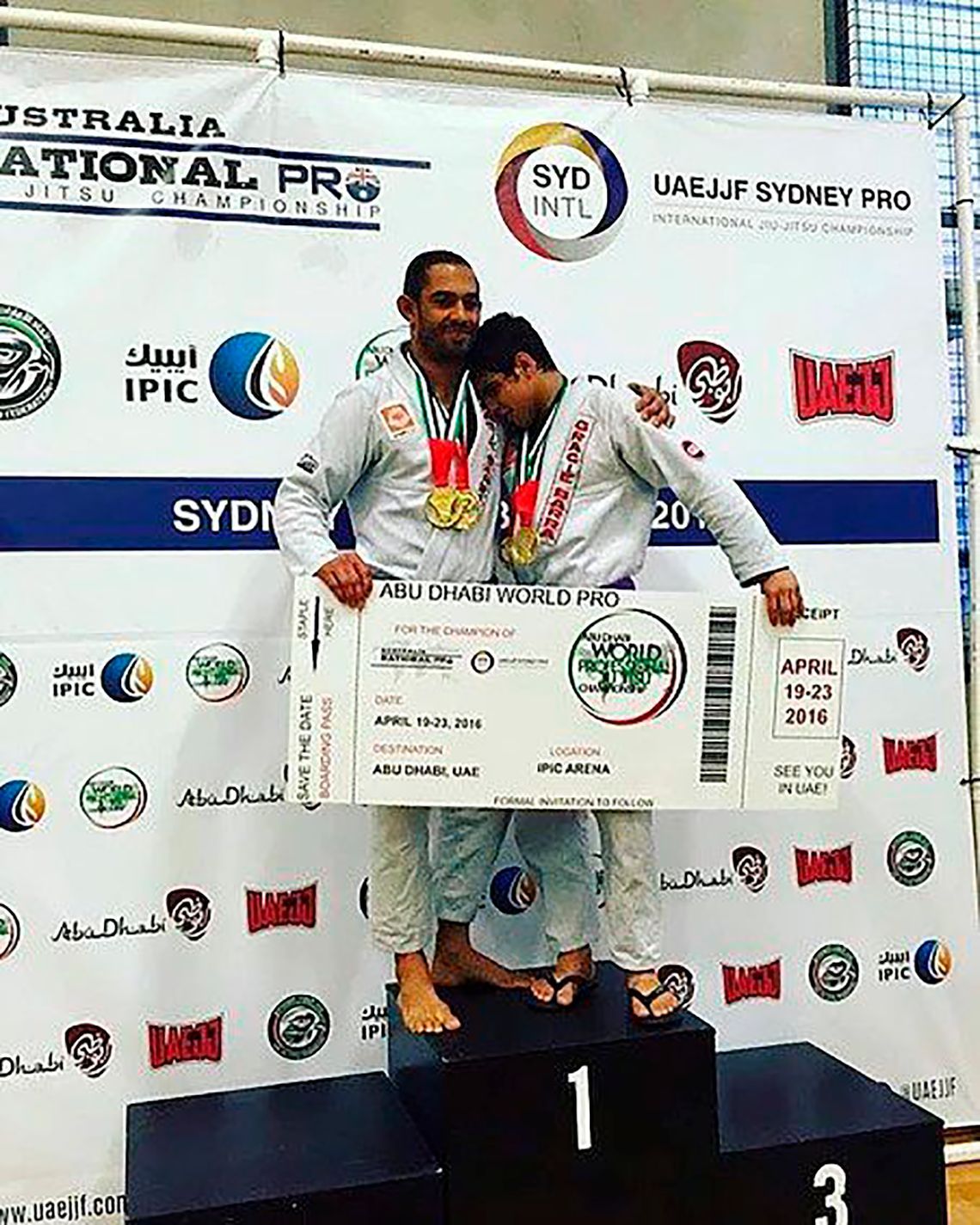
It’s January 2011 and 27-year-old Bruno Alves stands opposite World Champion Claudio Calasans in the centre of a packed stadium in Lisbon, Portugal. It’s the final day of the IBJJF European Championship and these two titans are about to fight for gold in the adults black belt middle weight division. It’s a gruelling battle that goes down to the wire but Claudio clutches victory in the final seconds. Competing in front of this huge crowd against the best in the world was a dream come true for Bruno and as a result of his performance he was selected for the Brazilian team who went on to win the IBJJF European Open Team Challenge in 2011. This would be a good year fo
As Bruno prepared to go home to Brazil, one of his friends invited him to the UAEJJF Abu Dhabi World Pro Trials in Poland. The trials were just two weeks away, but Bruno was fighting fit and decided to go. So, after 12 hours on a frozen cold train with no food or beverages and no hope of sleep, he stepped out into the below-zero Polish winter. Despite the bitter cold and some regret around his chosen mode of transport, Bruno would end up winning the Trials and in doing so earned a free ticket to his very first Abu Dhabi World Pro (ADWP) in 2011.
8 years, 5 trials wins and 6 podium finishes later, Bruno Alves has decided this year’s ADWP would be his last. After such an illustrious career at the ADWP I wanted to know what brought him to this decision and find out what kept him coming back to Abu Dhabi for close to a decade. So I sat down with Bruno this week to find out.
What can you remember about your first experience in Abu Dhabi in 2011?
My first ADWP was an eye-opening experience. My friend and I were blown away at the prize money and how much they looked after the athletes. I was put up for 2 weeks in a 6 star hotel! I couldn’t believe it. This was when athletes began to realise how much money the UAEJJF were putting into the sport. It was new for all of us and really exciting.
That year I competed as an adult black belt in the middle weight division (83kg) for No-Gi and Gi. In No-Gi I got third place, beating Claudio Calasans, while in the Gi I fought Claudio again and lost. Ha! That is Jiu Jitsu – always back and forth.
What is your greatest memory as a competitor in Abu Dhabi?
I have two favourite memories. One is the time that my cousin Igor Almeida and I both won the Sydney trials in 2016. Igor had only just arrived in Australia to live and train with me. This victory for both of us made me feel like we could both achieve anything together. We made our family and friends proud.
My other favourite memory is from 2012. I won the Trials in Brazil, then moved to Australia, and then the ADWP was only a few months after that. It was a short turnaround considering I was moving my life to a new country. I remember it being a challenging time for me as I was on a student visa and trying to pay my bills while also training hard for the World Pro. Exactly 4 weeks before the tournament I hurt my knee very bad. It got locked and I could not stretch my knee at all. I needed surgery but did not have the money. Luckily, one of my sponsors paid for my surgery but I was in no shape to compete. But I had my ticket and accomodation in Abu Dhabi already paid for so I decided to go as a spectator.
In the weeks leading up to competition I was doing only physiotherapy . On the day I left for the airport, my knee was still so stiff but I decided to bring my gi just in case. When I arrived in Abu Dhabi I had a roll with my sponsors team and my knee survived. Hang on, I thought. If I can spar okay then maybe I can compete. So I put my name down for the competition just before the deadline.
It had only been a few weeks since major knee surgery so I was trying desperately to keep this a secret from other competitors. I had friends coming to my hotel room so excited that I was competing but worried about my knee and I was telling them all to be quiet. I told them not to tell anyone and to pretend my knee was fine. That year I had four fights and lost the semi final to win 3rd place. Out of all my podium finishes, even the gold, this is my favourite one.
It showed me how strong we can be with our determination – not just in Jiu Jitsu but also in life. We all struggle with problems in our life but mental determination and the ability to believe in yourself is more important than even your physical ability. This year I hurt my knee again in the lead up to the AWDP but the memory of 2012 made me say to myself ‘come on – you did it then, you can do it again!’.
How was your physical preparation for this year’s ADWP?
Same as usual. We focus on strength and cardio with lots of hard rolls to improve endurance. But this year we actually focused more on our diet. We found a few gaps in our nutrition and worked with our team of health professionals to make our bodies even stronger. We also worked a lot on our lower body strength this year – mainly legs and hips – to try and prevent injuries and be strong for competition.
I heard that you injured your wrist as well as your knee during camp. How did that affect your preparation?
Yes, I hurt my wrist and knee during our 12 week camp. 8 weeks before comp I hurt my wrist and 2 weeks before I hurt my knee. But it didn’t impact my training. I just kept working hard with my wrist fully taped and a brace on my knee. On the day of competition I didn’t feel it anyway. And even if I did I wouldn’t use it as an excuse.
How was your weight cut?
I had to drop from 85 to 75 kgs for competition. I got down to 80 kgs in Australia then had to drop to 75kg on the day before with sauna and exercise.
How is this physical preparation different to the first time you competed in 2011?
These days we have a lot of support for me and my fellow team mates. We have a great group of trainers, nutritionists and other health professionals to get us ready, including Adam Pirri, our conditioning trainer; Nathan, Gemma and the team from THP who look after our nutrition and check our body composition; and Leo from Active Nutrition who provides the best supplements.
Back in 2010 I had an incredible Jiu Jitsu coach in Ze Radiola and we had one fitness coach for our whole team. These days we have a bigger support team and much more personal attention for each athlete.
How is this physical preparation different to the first time you competed in 2011?
These days we have a lot of support for me and my fellow team mates. We have a great group of trainers, nutritionists and other health professionals to get us ready, including Adam Pirri, our conditioning trainer; Nathan, Gemma and the team from THP who look after our nutrition and check our body composition; and Leo from Active Nutrition who provides the best supplements.
Back in 2010 I had an incredible Jiu Jitsu coach in Ze Radiola and we had one fitness coach for our whole team. These days we have a bigger support team and much more personal attention for each athlete.
I think if I had all the mental skills now when I was fighting in the adults circuit I would have many more great results. But it’s actually something that I learned along the way.
How did you develop this way of preparing mentally for competition?
Ze Radiola, my coach in Brazil, always pushed me and my team mates mentally. He always made us believe that we could achieve anything. This is something I try to pass onto my students. Ze Radiola was able to turn many young fighters into world champions, and this is what I want to do for my students. I want to make positive change in my students’ lives.
I remember talking to Ze Radiola on Skype from Abu Dhabi in 2012. I was telling him that ‘my knee is so swollen. It looks like a balloon!’. But Ze Radiola didn’t worry. All he said in reply was ‘Bruno, you’re going to win’. Ze Radiola always told us; ‘Whatever you do you have the potential to be the best in the world. If you want to sell popcorn you can be the best popcorn seller in the world. Whatever you choose, it doesn’t matter, you can be the best. And when people recognise your talent they will give you a chance.’
Do you analyse your opponents before competition
Not really. I watch a little bit of their videos but I’m not someone who studies every single movement of their opponents. Of course I am happy to win fights by advantage and points, but my main goal is to do my game and submit – not just to block my opponents’ game.
What is your game?
Omaplata from everywhere.
Do you find competing fun?
The competition itself I don’t really find fun. I think of competing more like a challenge for yourself to make you improve. The fun part of competition is sharing the experience with your friends; training, dieting, sauna sessions and cutting weight. I like the comradery of working hard towards something together with my friends. I also like the travel. This ADWP was especially amazing because the SJJA team was big and we got to see the sights around Abu Dhabi together like one big family. I hope this can happen more and more.
Do you listen to music to get pumped up when you train or before you compete?
I prefer to listen to motivational speakers when I train. Eric Thomas is someone I find very inspiring.
Do you have a morning ritual on the day of competition?
I like to stretch my body a bit when I wake up. I never used to do this but these days I try to visualise the fight, my body movement, and think positive thoughts. I like to listen to motivational talks at the start of day to get my mood in the right spot. I organise my bag with gi, drinks, supplements, food, gel, spare belts, etc. I have breakfast then sit and rest, try not to move too much. To be honest, my first fight on competition day is the one inside my head. I have to keep fighting to stay positive and dismiss negative thoughts. It’s inevitable that negative ideas will arrive into my mind but I try to let them go. I have to win the fight in my head before I step onto the mats.
How do you get your body ready for your first fight on the mats? And how do you stay warm between fights, while still conserving energy and staying relaxed?
The first fight is very hard if I dont’ warm up enough. But the last few years I’ve made sure to get really warm and it works really well. I always have the advantage because I’m warmer than my opponent.
After a fight I try to sit down and relax and think about what just happened. Then I think about how the next fight might go. When I feel like I’ve been sitting for too long and start getting cold ill stand up and do some sprawls, sit ups, push ups, and light rolls to stay warm enough. Then I’ll sit down and relax again.
Can you talk me through your experience at this year’s ADWP?
I had 4 fights in total this year. I was well prepared and feeling strong and confident. In the semi final I thought I had won but the decision went the other way. I never make excuses. Honestly I feel happy for my opponent. He fought hard so he deserved it. It was also his first world title in Abu Dhabi and, in my experience, when it’s your time things just go your way. This was his time.
How hard was it to come back from that controversial referee decision to then fight for bronze?
When I saw that he won, I went back stage and just tried to digest what happened. I was really disappointed. I had trained so hard and felt like I let everyone down. The truth was I got stuck in a position and couldn’t get the points I needed for the win.
I was very frustrated. But then I visualised my students who had travelled with me to Abu Dhabi and were waiting outside to watch me fight again. I thought about all my students and friends back in Australia watching online and wishing me well. And I thought of my family and friends in Brazil. I knew I had to get on that podium for all these people in my life. This was going to be my last ADWP and I had to get our SJJA team onto that podium.
Of course I would have liked to finish with a total of 4 World Masters Championships, but at the end of the day that doesn’t matter to me. My journey has been incredible and I just want to lead by example and pass on my lessons to my students. After 8 years, I won 5 trials, 2 bronze adults, 3 golds in masters and 1 bronze in master. I have the knowledge and experience now to pass onto my boys and girls. Thats the important thing
When did you decide this was going to be your last Abu Dhabi World Pro as a competitor? And what made you decide this?
I knew before I went.
I’ve had lots of injuries over the passed few years. I think my body is kind of telling me to slow down. I could keep competing but, as all my friends from Brazil know too well, I can’t do anything less than 110%. Im either in or out. To compete at that level I have to do really hard training and work beyond my limit. That’s how my brain works – I always think I can train more. I don’t know if its a sickness (ha!) but something in my brain says I always need to push more. I’ll always be training Jiu Jitsu and doing crossfit, weights, and looking after my body. But now I want to really focus on the team, work closely with my students and improve our school. And surf a bit more, especially in Bali.
The next ADWP will be in 2 years and it will be a big one for our team. In 2016, SJJA entered 4 competitors; in 2017 we entered 7; and this year we entered 12 (including athletes from our Dee Why school). In 2 years I want to send a team of 24.
So does this mean you are retiring from competitions all together?
The IBJJF World Masters this year, in Vegas, will be my last one. My goal is to make the finals again. I have fought at this comp for 4 years and have been in 4 finals. I want to bring the gold home for my team.
At our team’s first World Masters it was just 2 people; Mike Johnstone and I. But this year we have 8 competitors coming to Vegas. Enjoying this final competition experience with these friends is the best thing for me.
My job will always be as a leader of our team, but my students will be the next champions
What further goals do you have for the sport?
To build the best schools in BJJ. And we are getting closer every day. Everyone who comes to our schools can see how big, clean and organised ours schools are. Over the next 2-3 years I want to build SJJA into the strongest team in competition too.
I know how many lives we can change through Jiu Jitsu and that is most important. I want all my students to gain confidence, achieve their health goals and feel part of our community.
What about life goals? Anything left on the bucket list?
I want to spend more time with my family in Brazil who I miss a lot. I definitely want to surf and travel more. I’m used to travelling around the world just to compete and not being able to stay in one place for very long. I also want to do some philanthropy and community work in Brazil, especially in my home city of Pernambuco. I want to help through Jiu Jitsu, whether that means providing uniforms or coaching or supporting athletes in any way I can. At SJJA academies we are already sponsoring some young athletes and families and hope to keep doing this with the growth of the clubs.
A final word from Bruno…
I would like to thank my parents who believed in my dream with me. I want to thank my coach Ze Radiola for teaching me the best Jiu Jitsu in the World and supporting me through the good and bad times. I want to thank all my friends in Brazil and around the world and my students who support me unconditionally and inpire me everyday. I want to thank my conditioning coach Adam Pirri for pushing me beyond the limit these last few years, Nathan and Gemma from THP for all their hard work looking after our nutrition, and Leo from Discont Acitve Nutrition Crows Nest for providing the best sport supplements during our on and off seasons. I believe that nobody succeeds alone. Thanks for everything guys.
Oss!
Interview by Chris Burke
